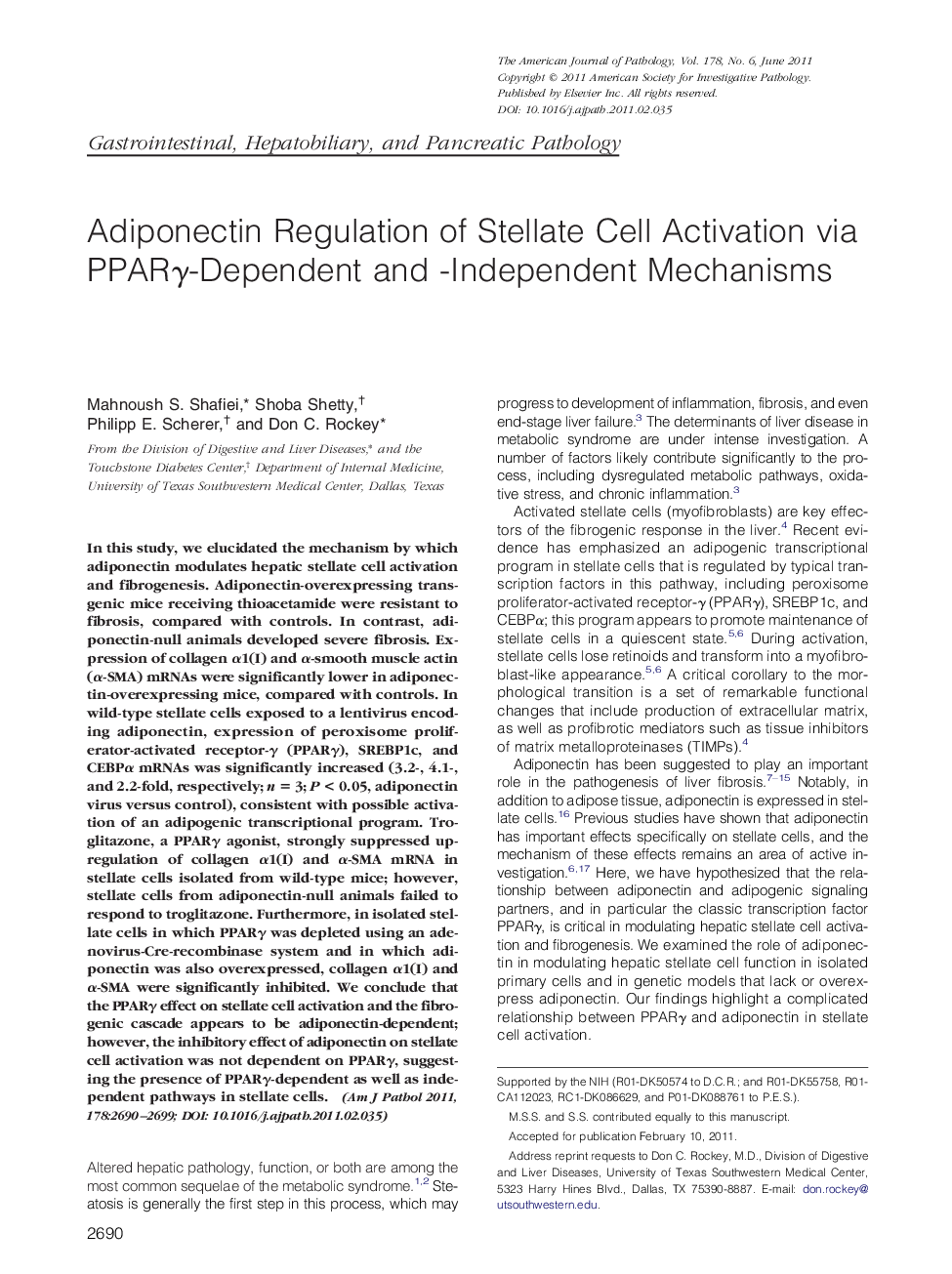| Article ID | Journal | Published Year | Pages | File Type |
|---|---|---|---|---|
| 5939497 | The American Journal of Pathology | 2011 | 10 Pages |
In this study, we elucidated the mechanism by which adiponectin modulates hepatic stellate cell activation and fibrogenesis. Adiponectin-overexpressing transgenic mice receiving thioacetamide were resistant to fibrosis, compared with controls. In contrast, adiponectin-null animals developed severe fibrosis. Expression of collagen α1(I) and α-smooth muscle actin (α-SMA) mRNAs were significantly lower in adiponectin-overexpressing mice, compared with controls. In wild-type stellate cells exposed to a lentivirus encoding adiponectin, expression of peroxisome proliferator-activated receptor-γ (PPARγ), SREBP1c, and CEBPα mRNAs was significantly increased (3.2-, 4.1-, and 2.2-fold, respectively; n = 3; P < 0.05, adiponectin virus versus control), consistent with possible activation of an adipogenic transcriptional program. Troglitazone, a PPARγ agonist, strongly suppressed up-regulation of collagen α1(I) and α-SMA mRNA in stellate cells isolated from wild-type mice; however, stellate cells from adiponectin-null animals failed to respond to troglitazone. Furthermore, in isolated stellate cells in which PPARγ was depleted using an adenovirus-Cre-recombinase system and in which adiponectin was also overexpressed, collagen α1(I) and α-SMA were significantly inhibited. We conclude that the PPARγ effect on stellate cell activation and the fibrogenic cascade appears to be adiponectin-dependent; however, the inhibitory effect of adiponectin on stellate cell activation was not dependent on PPARγ, suggesting the presence of PPARγ-dependent as well as independent pathways in stellate cells.
